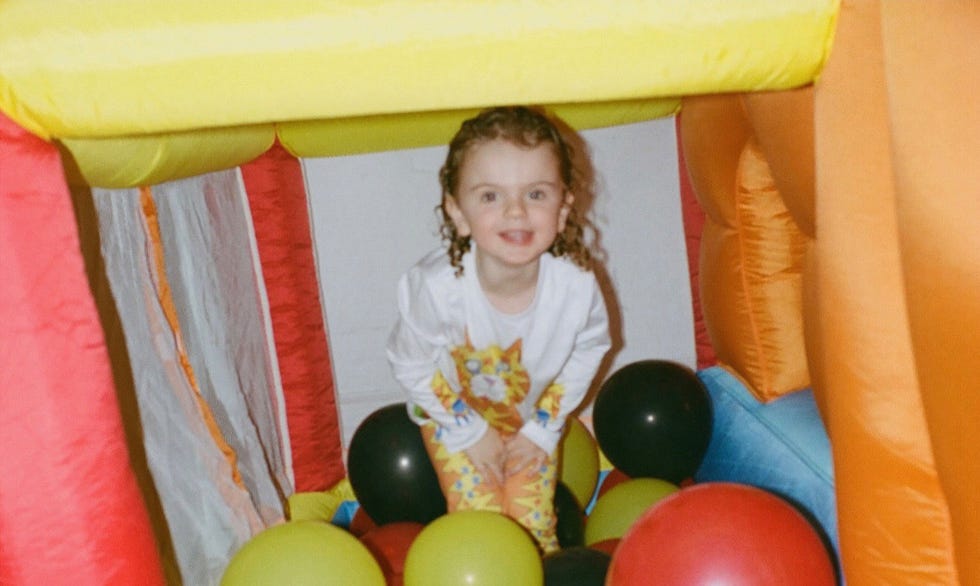The original post is located at www.elle.com
On a Christmas morning many years ago, as I observed my friends eagerly unwrapping gifts of thrifted designer shoes and handbags, their faces lit up with pure joy, I had an epiphany. We all shared similar backgrounds: an absent parent here, a perpetually stressed parent there, or parents too wrapped up in their own struggles to be present.
This realization was bittersweet, but mostly sweet. Despite our shared traumas, we had woven something incredibly meaningful—a real family. None of us had a traditional home to return to during the holidays, but we had each other. And so, we ushered in a new, cherished tradition. Every holiday since then, we have opened our home to anyone without a biological family to go home to.
Before finding my chosen family, the holidays were always particularly difficult, especially in a city like New York. Most of my friends would retreat to their lavish homes on Long Island or elsewhere, leaving me to navigate the desolate landscape of Christmas in the city alone. I was too proud to seek companionship and too ashamed to admit I had nobody. I’d lock myself in my room, turning to TV and substances to pass the time, counting down the minutes until the dreadful day was over.
As a child, I felt like an orphan. I was often scapegoated, emotionally neglected, and severely misunderstood. I would often cling to any stranger that would show me an ounce of affection, oftentimes falling into predatory hands. My friend’s mothers could see me for who I was and overcompensate by allowing me to move in with them, just until “things get better at home.” But things never did get better. When I had overstayed my welcome, I would pack up my backpack and move onto the next temporary safe haven.
I became a master at adjusting to ever-changing dynamics and interpersonal relationships. I learned to read people’s moods just by their gaze. I knew when to speak, but more importantly, I knew when to leave. By doing so, I learned how to survive.
The formation of a chosen family is a deeply personal and organic process. The term gets thrown around a lot nowadays, and I can’t help but ask myself: Can you have a chosen family when you have close ties with your biological family? Although this group of loved ones is a beautiful thing, it’s typically born out of isolation, ostracization, and an immense amount of pain. How can you reach your chosen family if you haven’t been lost at sea alone for a lifetime before that?
Unlike the conventional family unit defined by blood ties and headaches, chosen family members are individuals who, through shared experience, create a solid intimate and supportive network that transcends time. At the heart lies the fundamental yearning to belong, the desire for companionship, and especially the need for pure and unconditional love. At our core we are all social creatures, seeking connections that nurture our emotional well-being and reaffirm our sense of identity. When traditional families fail at providing that foundational support system, it’s only natural that we go out into the world subconsciously searching and attracting those who are in a similar struggle.
It took years to find my chosen family, but when I did, something clicked. It was magic. It was as if they could feel what I had desperately been missing and they willingly stepped into this void, offering me radical acceptance. This was really put to the test when I had a child of my own. Due to some unforeseen and devastating circumstances, I was left alone with an infant. By that point, I had moved out of the home I had shared with them for over a decade and into a small apartment with a man who would leave me shortly after giving birth. I felt alone again, but mostly, I felt as if I was failing my child and bringing him up in the same conditions I was raised in. It took me a while to ask for help. It took even longer for me to admit to myself that I even needed help. I was 30. Surely, a 30-year-old should have her life together, I thought.
It didn’t take long for my chosen family to hear the things I wasn’t saying. They felt my pain and sprung into action. Fast-forward three years, we’re all living together again under one roof, co-parenting a happy little boy who’s never had to endure the sounds of fighting and yelling. Who only knows unconditional love and support. That’s something I didn’t learn until I found them.
One of the defining characteristics of a chosen family is inclusivity and diversity. These networks often comprise individuals from various backgrounds, sexualities, cultures, and life experiences. It’s this eclectic mix that fosters the empathy and understanding of our interconnectedness. What I’ve learned in my community is that no matter where we are from, we really aren’t all that different.
They also play a crucial role in providing support, especially for individuals navigating non-traditional identities or marginalized communities. LGBTQ+ individuals, for instance, often find solace and affirmation within circles that embrace and celebrate their identities without judgment or prejudice.
The overall impact is profound and enduring. Numerous studies have demonstrated the significant contribution of strong social connections to mental health, resilience, and overall happiness. I know that my chosen family played a crucial role in determining whether I would live or die. At 19, my chosen sister took me with her to an Alcoholics Anonymous meeting, altering the course of my life forever. Prior to that pivotal moment, I was tumbling down a self-destructive path, but the intervention is the reason I’m here today.
I’m sure at this point you’re wondering, “How can I find my own chosen family?” Well, the answer is simple: They will find you. Take the proverbial mask off, the one you put on when you want to fit in. The one you wear so no one will see how special you are. Once you embrace who you are and own your identity, your people will finally be able to find you. It was only when I started practicing radical honesty and humility that I was able to attract one into my life.
In my journey, I’ve learned that family is not solely defined by blood relations, but by the depth of emotional connection and the commitment to each other’s growth and happiness. It’s hard work to love someone unconditionally. I know I can be difficult sometimes too. There were so many opportunities for my sisters to walk out of my life, but they chose to stay. And that’s the difference between friends and family. Friends can always leave, but family doesn’t have that option.
The people I surround myself with represent a beautiful tapestry of unique human relationships woven together by love, choice, and mutual support. We embrace each other’s flaws and we hold each other tighter during the difficult moments. We embody the essence of family beyond biological boundaries, offering a sanctuary of acceptance and belonging. As society continues to evolve, embracing the concept of chosen family enriches our collective understanding of human connection and the levels of love that we need to sustain us. For some, it may be the difference between life or death.









